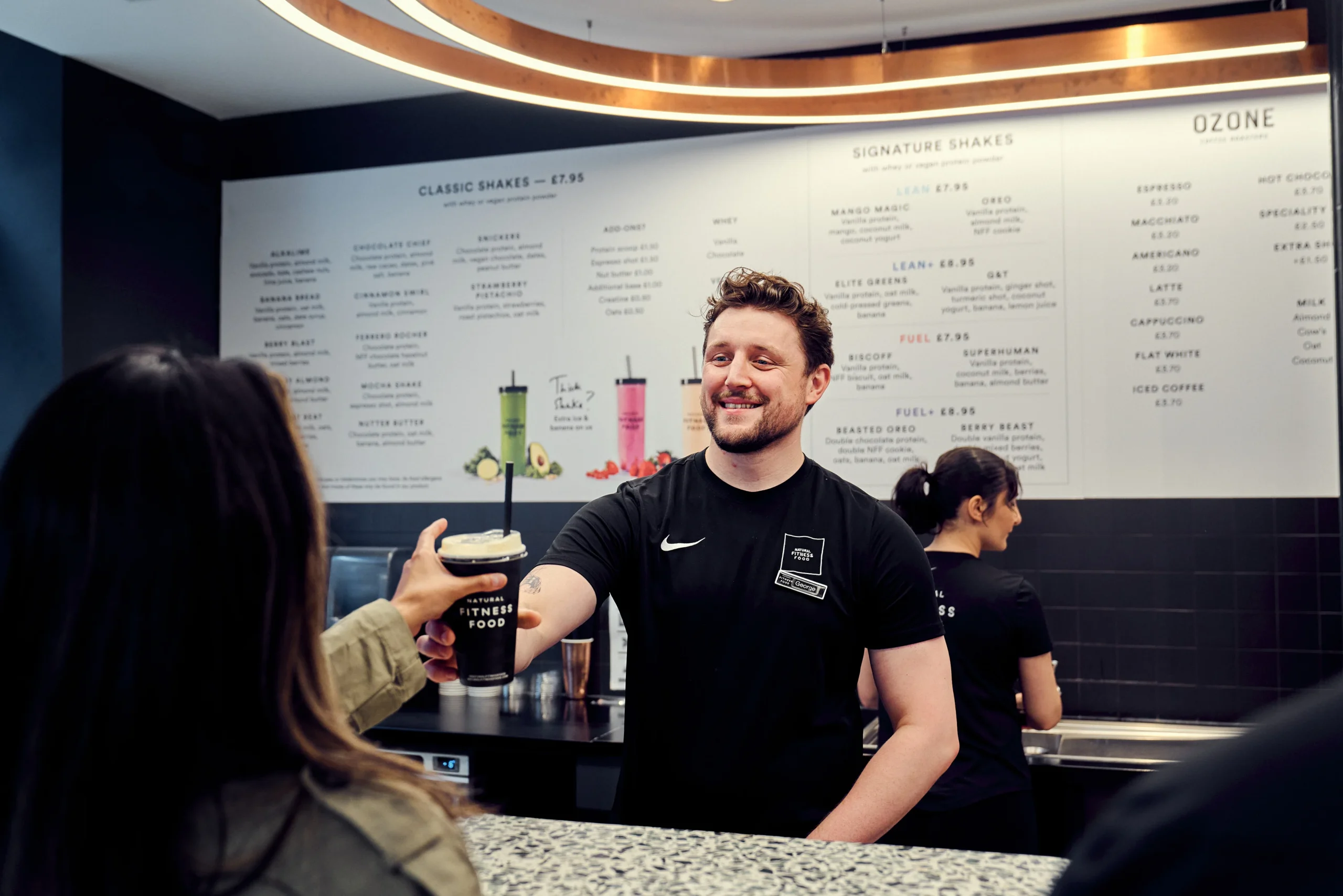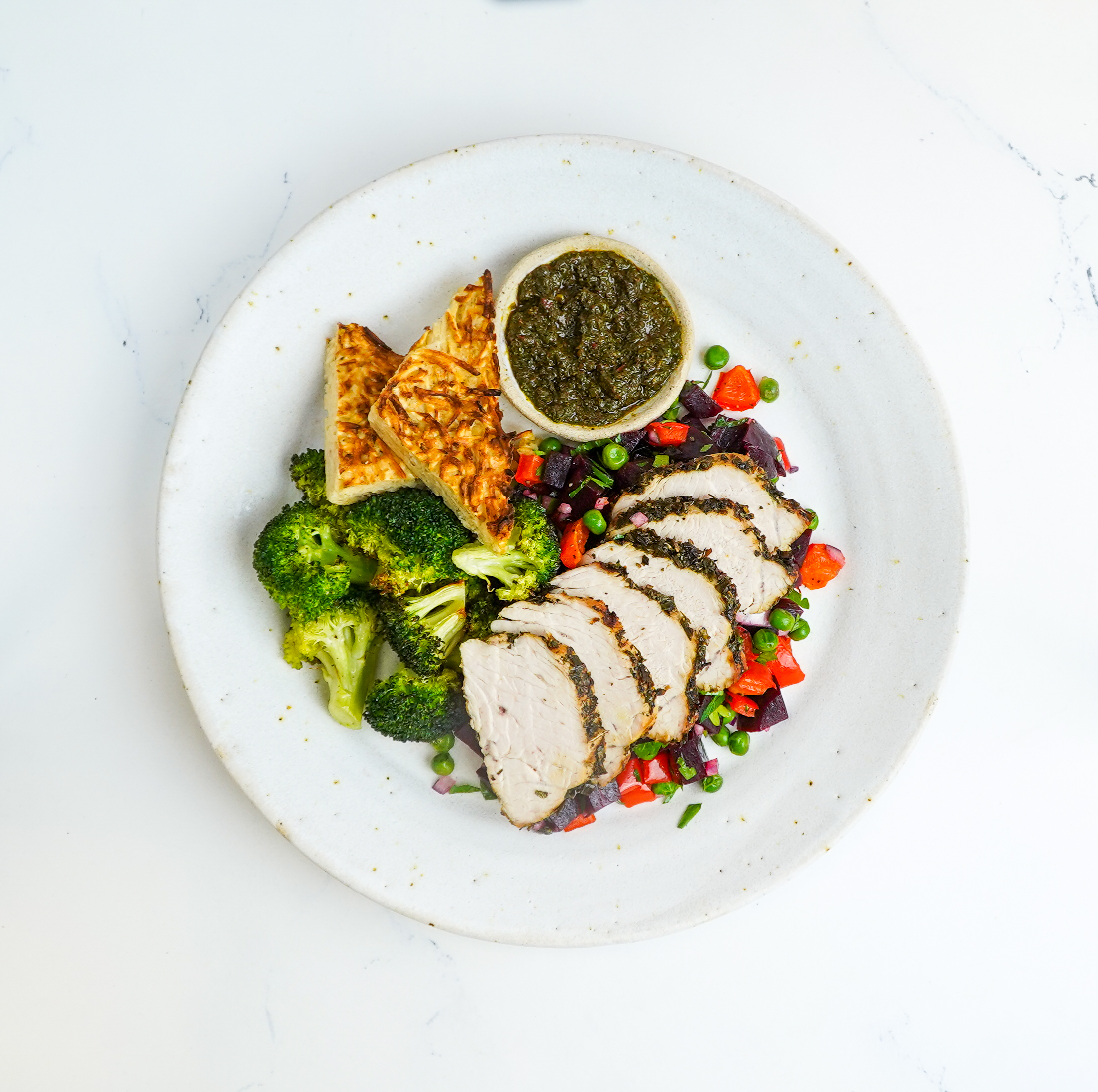- Linkedin Share
- Twitter Tweet
- Email Share
- Copy link Copy link Copied to clipboard
It can be argued that what separates the novice fitness enthusiast from the dedicated lifter is not what’s done inside the gym, but outside. When you’re hitting the gym or pounding the pavement, extracurricular activities can be the catalyst to big changes, from recovery to mobility and sleep hygiene to better mental practices.
The biggest contributor? Your nutrition. Whether you’re looking to build muscle, get leaner or improve your performance and endurance, there are plenty of ways to use your time in the kitchen to directly influence your time spent in the gym. Here, Frances Smith, Head of Nutrition at Natural Fitness Food, shares a few digestible pointers that can have you cooking up some real progress — at home and away.
“When planning for a workout, there’s a lot that goes into it to help you reach your goals, consuming the right nutrients after you exercise is just as important as what you eat before,” says Butcher. “To understand how the right foods are optimal post-exercise, it’s important to learn how physical activity affects your body”
“When you’re working out, your muscles use up their glycogen stores, the body’s preferred fuel source, especially during high-intensity workouts. This results in your muscles being partially depleted of glycogen. Some of the proteins in your muscles can also be broken down and damaged if you start out in a depleted state.”
After your workout, your body tries to rebuild its glycogen stores, Frances explains, as well as repair and regrow muscle protein. Eating the right nutrients after you exercise can help your body do this more efficiently. For most, it comes to proteins, carbohydrates and fats. Here’s how to get the most out of each:
Protein for Muscle Growth
What: Whey or plant-based protein powder, eggs, greek yoghurt, cottage cheese, chicken, beef, cod, tuna and salmon.
Why: “Exercise triggers the breakdown of muscle protein. The rate at which this happens depends on the exercise and your level of training, but even well-trained athletes experience muscle-protein breakdown,” says Frances. “Consuming an adequate amount of protein after a workout gives your body the amino acids it needs to repair and rebuild these proteins. It also gives you the building blocks required to build new muscle tissue.”
How: It’s recommended that you consume 0.3–0.5 grams/kg very soon after a workout. Studies have shown that ingesting 20-40 grams of protein maximises the body’s ability to recover after exercise.
Carbs for Recovery
What: Sweet potato, quinoa, fruits, rice, rice cakes, potatoes, pasta
Why: “Your body’s glycogen stores are used as fuel during exercise, and consuming carbs after your workout helps replenish them,” says Frances. “The rate at which your glycogen stores are used depends on the activity. For example, endurance sports cause your body to use more glycogen than resistance training. For this reason, if you participate in endurance training, you might need to consume more carbs than after a lifting session.”
How: 1–1.5 grams/kg of body weight within 30 minutes after training results is typically considered optimal for glycogen resynthesis.
Fats for satiation
What: Avocado, nuts, nut butter, seeds, trail mix
Why: “Many people think that eating fat after a workout slows down digestion and inhibits the
absorption of nutrients. While fat might slow down the absorption of your post-workout
meal, it will not reduce its benefits,” says Frances. “One study showed that even when ingesting a high-fat meal (45% energy from fat) after working out, muscle glycogen synthesis was not affected.”




